Salesforce's Algorithm for Converting IDs from 15 to 18 Characters
Need to convert 15-character Salesforce IDs to 18-character IDs. Here's how:

The Context
Salesforce IDs are actually comprised of several pieces of data and can come in 15 or 18 character varieties. The difference is that the 18-character flavor has a suffix that will render them case-insensitive. From time to time, you have come across a data extract or something that contains the 15-digit variety and have a need to convert them to 18-digit IDs.
For more information about just what is included in a Salesforce ID, checkout this post:
Salesforce IDs Explained
Everything you ever wanted to know about Salesforce IDs and then some.

If you don't care to dig into the details and just want a handy online converter, here ya go:
Salesforce ID Converter
Convert 15-character Salesforce IDs to 18-character IDs.

The Algorithm
- First we need to divide the 15-character ID into 3 groups of 5 characters.
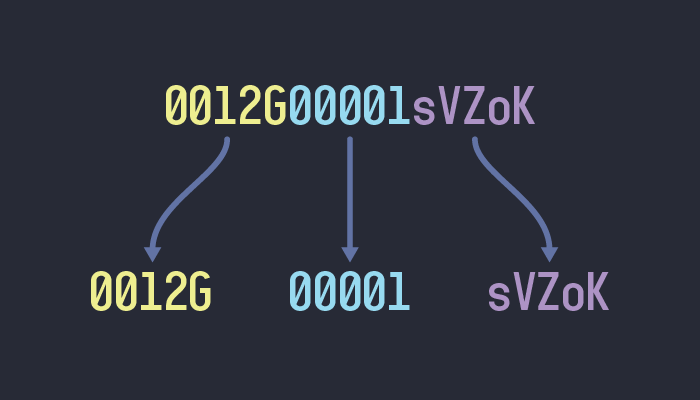
- Now we need to reverse the order of each set
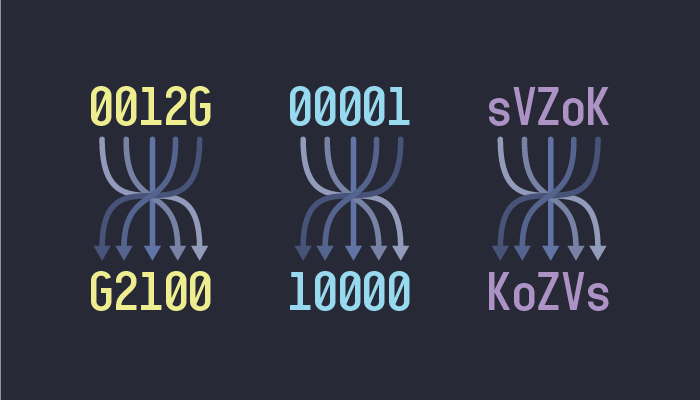
-
For each set of characters, we will create a new set of bits (
1s and0s). Then for each character, we will add a1to the corresponding set of bits, if the character is an uppercase letter, or a0if the character is a lowercase letter, or a number.
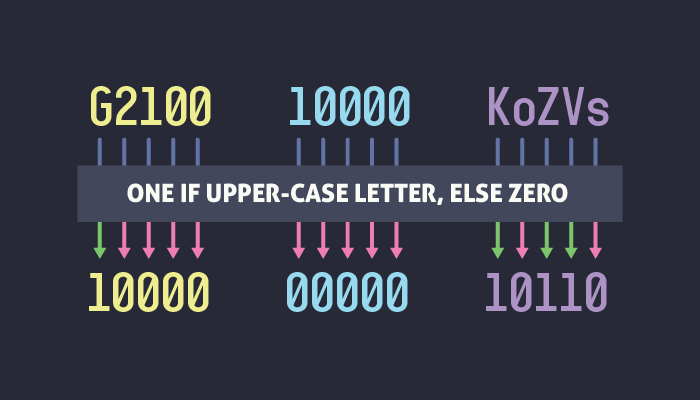
-
The previous step actually converted each character set into a number, in binary. Now we need to convert each binary number to a decimal number. This should leave us with 3 numbers that could range from
0to31.
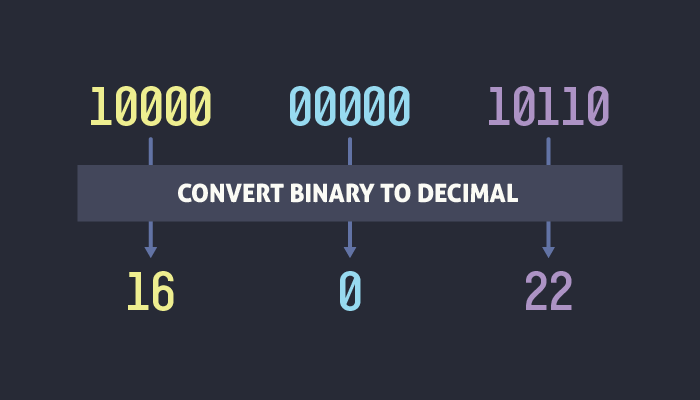
-
Now we will need to construct a collection of character that will include uppercase letters from
AtoZ, and the numbers0through5, as follows:ABCDEFGHIJKLMNOPQRSTUVWXYZ012345 -
The last step here is to look at our 3 numbers, and find the character in the collection we just created at the index of each number. The index is zero-based so
0=A,1=B, and so on. The result of this operation should leave us with 3 character.
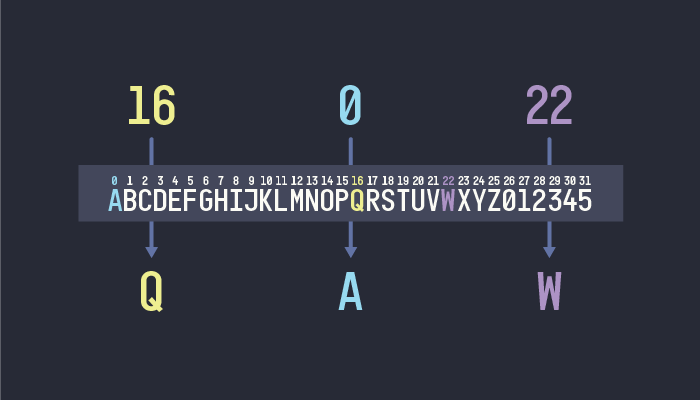
And there's your suffix! 🎉
Simply tack it on to the end of the original ID
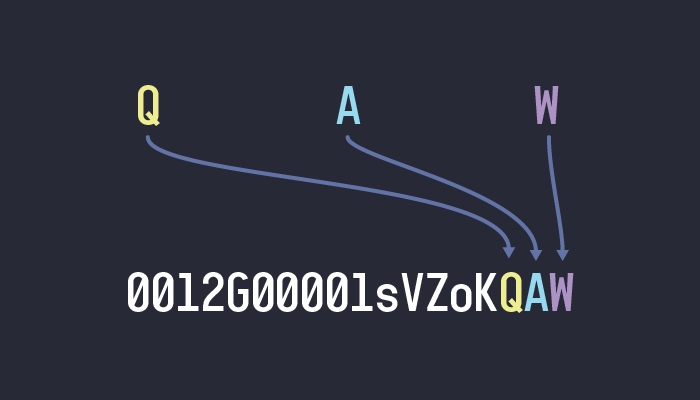
Need a code example?
This is the exact JavaScript that I use for my online-converter:
const convertId = id => {
let segments = id.match(/.{5}/g);
segments = segments.map(segment => {
return segment.split('').reverse().join('');
});
let bitArrays = [];
segments.forEach(segment => {
const bitArray = [];
segment.split('').forEach(char => {
bitArray.push(/[A-Z]/.test(char) ? '1' : '0');
});
bitArrays = [...bitArrays, bitArray.join('')]
});
const mapping = ['A', 'B', 'C', 'D', 'E', 'F', 'G', 'H', 'I', 'J', 'K', 'L', 'M', 'N', 'O', 'P', 'Q', 'R', 'S', 'T', 'U', 'V', 'W', 'X', 'Y', 'Z', '0', '1', '2', '3', '4', '5'];
suffixChars = bitArrays.map(bits => {
return mapping[parseInt(bits, 2)];
});
return suffixChars.join('');
};

